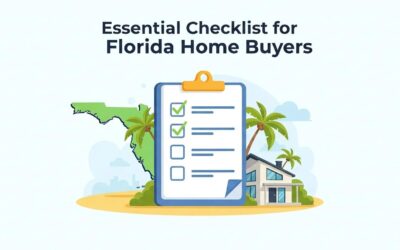To find a bargain-priced home, begin by evaluating your financial situation and obtaining mortgage prequalification. Research affordable neighborhoods with growth potential and consider smaller homes or fixer-uppers that require cosmetic improvements. Engaging a knowledgeable, genuine estate agent can significantly improve your negotiation power. Don’t overlook the value of home inspections to uncover hidden issues and guarantee you’re making a sound investment. Ultimately, investigate local assistance programs designed to help lower-income families. Your quest for a bargain-priced home hinges on strategic planning and patience; further investigation reveals even more effective strategies.
Key Takeaways
- Research affordable neighborhoods with population growth and declining crime rates to identify bargain-priced opportunities.
- Consider smaller homes or fixer-upper options to find lower purchase prices and potential for value appreciation.
- Utilize mortgage shopping strategies to secure favorable rates and terms, maximizing the budget for a bargain home.
- Engage a knowledgeable real estate agent who can uncover hidden deals and negotiate competitive offers on your behalf.
- Be patient and flexible in your search, as persistence can reveal unexpected bargains in the housing market.
Assess Your Financial Situation
Before undertaking the quest to find a bargain-priced home, it is vital to thoroughly assess your financial situation, as this will lay the foundation for a successful purchase. Begin by calculating your monthly income to determine what you can afford. List all fixed expenses—such as rent, utilities, and loan payments—alongside variable expenses like groceries and entertainment. This all-encompassing overview will help you gauge your financial readiness.
Next, evaluate any outstanding debt, including credit card balances and student loans, and review your credit score for errors. A solid credit score is pivotal for favorable mortgage terms, so implement strategies to improve it, such as timely bill payments and reducing debt. Additionally, aim for a credit score of 620 or higher for better loan options. Understanding the legal and financial implications is also essential when entering the real estate market.
Additionally, assess your savings to determine your down payment capabilities. The standard down payment is 20% of the home price; however, lower options exist with specific implications. Factor in ongoing home expenses, including property taxes and insurance, to prevent future financial strain. Adhering to the 28/36 rule will help guarantee that your housing costs remain manageable. A realistic budget, informed by these assessments, will enable you to pursue your dream of homeownership with confidence and clarity.
Essential Key Takeaways for Discovering Affordable HomesPrequalification
Having established a clear understanding of your financial situation, the next step in your home-buying journey involves obtaining prequalification. This process offers a quick estimate of the mortgage amount you might secure, allowing you to define a practical home-buying budget. By connecting with a lender online or by phone, you provide basic financial information—such as your income, employment status, monthly debts, and planned down payment—while a soft credit check is conducted, ensuring no negative impact on your credit score.
The outcome of this preliminary screening is an estimated loan amount and sometimes a projected interest rate, which can significantly improve your confidence as you set out on house-hunting. Additprequalificationng prequalification can expedite the mortgage application process as it familiarizes buyers with lender requirements, serving as a vital step toward securing financing prequalification. Prequalification is not a commitment; it serves as an essential preparatory step toward preapproval, speeding up the eventual loan application process.
Importantly, this initial assessment can be a powerful tool for budgeting, helping you navigate the often overwhelming housing market with more clarity. Understanding your financial range not only aligns with your aspirations but also fosters a sense of belonging in your chosen community, making the dream of homeownership more attainable.
Research Affordable Neighborhoods

Prospective homebuyers seeking to improve their investment and secure long-term satisfaction must conduct thorough research on affordable neighborhoods. Understanding demographic and resource accessibility factors can significantly influence their decision-making process.
Consider the following key aspects when researching neighborhoods:
- Demographics: Aim for a balance between median household income and home value; a high home value should not correspond with a low income.
- Population Growth: Neighborhoods exhibiting a 20% population increase over time are typically more desirable.
- Crime Rates: Prioritize areas with declining crime rates for safety and stability.
- Resource Accessibility: Look for neighborhoods with quality schools, parks, and public libraries to guarantee better living conditions and opportunities. Resource-rich neighborhoods often provide access to these essential amenities.
- Economic Indicators: The Neighborhood Resource Index should be used to assess educational outcomes and poverty rates, focusing on resource-rich areas.
Consider Smaller Homes
Exploring affordable neighborhoods naturally leads homebuyers to evaluate the benefits of smaller homes, which can significantly improve their financial and lifestyle choices. Smaller homes typically come with lower purchase prices and reduced mortgage payments, resulting in substantial cost savings. Beyond the initial investment, homebuyers can also enjoy lower property taxes, smaller utility bills, and reduced home insurance premiums, creating a more manageable financial landscape.
Furthermore, smaller homes require less maintenance and upkeep. With reduced cleaning time and lower maintenance costs, homeowners can dedicate more time to nurturing relationships and fostering family bonding. The necessity to downsize possessions often leads to a simpler, more meaningful lifestyle, allowing for potential investment in higher-quality furnishings. Moreover, smaller homes tend to sell more quickly due to their attractive price points, offering flexibility for future moves.
In fact, the demand for affordable housing options is increasing, making smaller homes easier to market. While there are some potential drawbacks, such as limited space for children and guests, the advantages of smaller homes often outweigh the cons. By considering smaller homes, buyers cannot only improve their financial stability but also adopt a lifestyle centered around connection and belonging. This choice ultimately fosters a deeper appreciation for what truly matters in life.
Explore Fixer-Upper Options

Considering a fixer-upper can open doors to affordable homeownership, enabling buyers to tap into their creativity while investing in a property that may appreciate over time. However, it is crucial to approach this option with careful consideration and planning. Here are some key factors to examine before committing to a fixer-upper:
- Define the Fixer-Upper: Identify homes needing repairs, whether cosmetic or structural, that are still livable.
- Assess Location: Evaluate neighborhood desirability and proximity to amenities and transportation.
- Inspect Structural Integrity: Examine the layout and check for potential water damage or foundation issues.
- Budget for Renovations: The average renovation cost is around $52,304. Prioritize critical repairs initially, as the potential return on investment can be significant after upgrades.
- Consider Financing Options: Investigate tailored mortgage products like Freddie Mac’s CHOICERenovation to fund your project.
Hire a Real Estate Agent
While maneuvering the complex authentic estate market, enlisting the expertise of a qualified genuine estate agent can significantly improve your home-buying experience. A skilled agent provides access to a broader range of properties, including MLS listings, off-market opportunities, and pre-market notifications. This expanded search power guarantees you won’t miss hidden gems that may not be publicly advertised.
Moreover, an experienced agent offers invaluable negotiation skills and local market insights. They understand current trends and price points, allowing them to guide you in making competitive offers without overextending your budget. Their familiarity with the intricacies of the market can also help navigate potential inspection or appraisal challenges, protecting your interests throughout the process. Additionally, a knowledgeable agent can help you devise unique negotiation tactics tailored to the current market dynamics, ensuring you secure the best possible deal. They can also provide access to a network of clients interested in buying or selling, which may lead to opportunities that you wouldn’t find otherwise.
Additionally, hiring an actual estate agent saves time and costs. They handle all paperwork, inspections, and appraisals, guaranteeing that everything proceeds smoothly and on schedule. Their professional expertise also includes providing referrals to trusted service providers, further simplifying your home-buying expedition. Ultimately, an agent offers objective guidance and ethical standards, allowing you to focus on finding a home that fulfills your desire for belonging while avoiding the pitfalls of the market.
Work With a Home Inspector

Many homebuyers underestimate the vital role that a thorough home inspection plays in the property purchasing process. Engaging a qualified home inspector can illuminate hidden issues, ultimately guiding buyers toward informed decisions. A detailed inspection not only reveals potential problems but also empowers you to negotiate more effectively.
Consider these significant benefits of working with a home inspector:
- Uncover potential issues that may not be visible during a walkthrough.
- Make informed decisions during negotiations based on the home’s actual condition.
- Prioritize necessary repairs that align with your budget and renovation willingness.
- Negotiate a fair price, factoring in the cost of required repairs.
- Provide transparency, enhancing trust between buyers and sellers.
Attending the inspection allows you to ask questions and gain insights. Understanding the inspection report is vital; it differentiates between minor cosmetic concerns and significant structural issues. This knowledge will help you craft a negotiation strategy, whether asking for repairs or a price reduction. By leveraging the findings of a home inspection, you significantly increase your chances of securing a bargain-priced home that meets your needs. Additionally, a thorough inspection can uncover hidden defects, potentially saving you significant future costs.
Investigate Local Assistance Programs
Exploring local assistance programs can significantly improve your chances of finding a bargain-priced neighborhoodthat aligns with your financial capabilities. These programs, primarily funded by the federal government through agencies like the U.S. Department of Housing and Urban Development (HUD) and the U.S. Department of Agriculture, offer valuable resources to make housing more affordable.
Key initiatives such as the Low Income Housing Tax Credit (LIHTC) program and Section 8 housing choice vouchers can significantly reduce your housing costs. For example, in Florida, Section 8 prioritizes a significant percentage of new enrollments for extremely low-income households, ensuring that those with limited means can access safe and affordable housing. Additionally, programs like the Florida State Housing Initiatives Partnership (SHIP) assist families earning at or below 80% of the area median income, further expanding opportunities for affordable homeownership and rental options.
While the application process can be competitive, with demand often exceeding supply, the potential benefits are considerable. By actively investigating and applying for these programs, you not only improve your ability to secure a home within your budget but also foster a sense of belonging in your community, making the process toward homeownership both achievable and fulfilling.
Shop for the Best Mortgage

Finding the right mortgage is a critical step in securing a bargain-priced home. The terms you choose can significantly impact your overall financial health. Understanding current mortgage rates and researching extensively can lead to favorable lending options that align with your financial goals.
Here are key strategies to reflect on:
- Understand Current Rates: Monitor fluctuations. The 30-year fixed rate currently averages 7.00% but can vary by lender.
- Research Lenders: Compare rates from traditional banks, credit unions, and online lenders to find the best deals tailored to your situation.
- Improve Your Financial Standing: A higher credit score and larger down payment can significantly improve your mortgage terms.
- Utilize Mortgage Brokers: Harness their expertise and connections to access better rates and loan products.
- Explore Alternative Options: Reflect on adjustable-rate mortgages or government programs like FHA and VA loans for potentially lower rates.
Be Patient and Persistent
Patience and persistence are critical qualities in the process of securing a bargain-priced home. Establishing clear goals and priorities is fundamental; define your must-haves versus nice-to-haves to maintain focus amidst the myriad of options. Conduct thorough market research to understand current conditions and trends, allowing for informed decisions that align with your budget and timelines.
Managing expectations is similarly essential. Recognize what is achievable within your financial constraints and be prepared to compromise on non-essential criteria. Taking regular breaks can help mitigate stress and keep your perspective fresh, ultimately preventing burnout.
To improve your persistence, you should continuously learn about the home-buying process and market dynamics. You should also stay vigilant by monitoring new listings and leveraging effective negotiation techniques based on thorough market research.
Flexibility is crucial in competitive markets. Expand your search area and criteria to reveal hidden gems. Finally, seek professional guidance from seasoned real estate agents who can provide invaluable insights and support. By embodying patience and persistence, you can find a home that not only meets your needs but also fosters a sense of belonging in your community.
Frequently Asked Questions
How Can I Improve My Credit Score Before Buying a Home?
To improve your credit score before purchasing a home, consistently monitor your credit reports for inaccuracies, guarantee timely bill payments, reduce outstanding debt, maintain low credit utilization, and avoid opening new accounts. Financial discipline is crucial.
What Should I Look for in a Home Inspection Report?
In a home inspection report, prioritize structural integrity, safety concerns, and maintenance recommendations. Analyze observations meticulously, focus on critical systems, and guarantee clarity in findings to make informed decisions regarding potential home investments.
Are There Hidden Costs When Buying a Fixer-Upper?
Yes, purchasing a fixer-upper often entails hidden costs, including structural repairs, outdated systems, and unexpected renovation expenses. Thorough inspections and budgeting for these potential financial pitfalls are crucial to guarantee a successful investment and avoid costly surprises.
How Do I Negotiate the Price of a Home?
What Factors Affect Property Value in a Neighborhood?
Location, accessibility, neighborhood characteristics, infrastructure development, and economic factors influence property values in a neighborhood. Understanding these elements provides insight into market dynamics, enabling informed decisions for prospective homeowners and investors alike.
Conclusion
A calculated method illuminates the path to success in the quest for a bargain-priced home. Potential homeowners can uncover hidden gems by diligently evaluating financial capabilities and exploring diverse neighborhoods. The allure of fixer-uppers, akin to rough diamonds awaiting polish, offers opportunities for both investment and customization. With patience as a companion and thorough research as a foundation, the dream of affordable homeownership transforms from mere aspiration into concrete reality, inviting people to step into their future with confidence.







